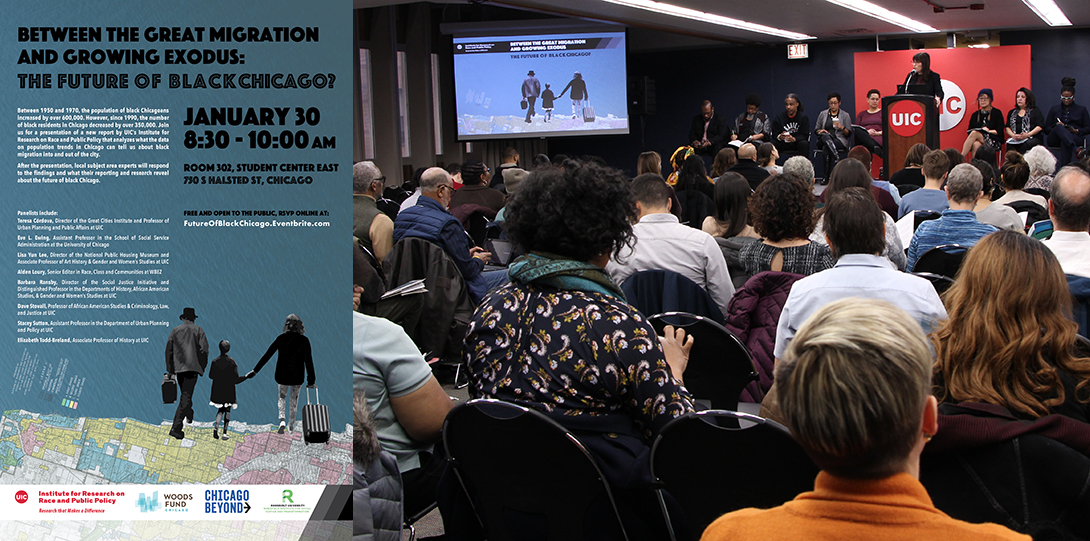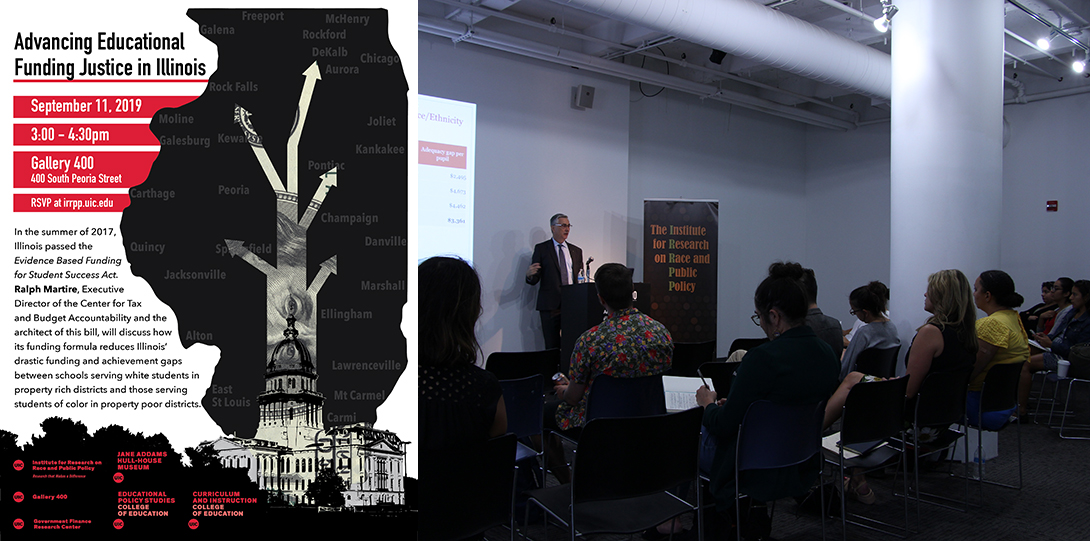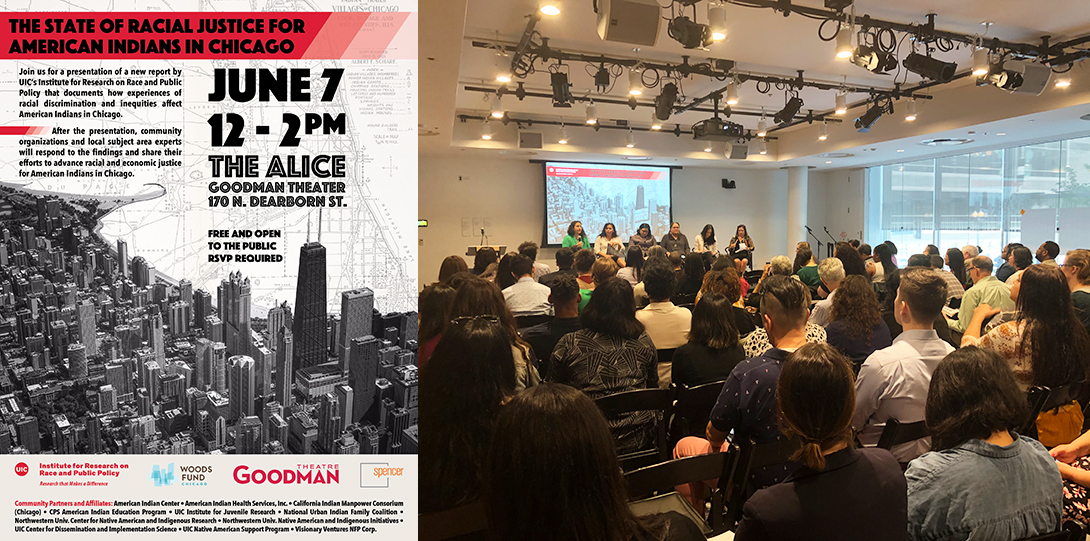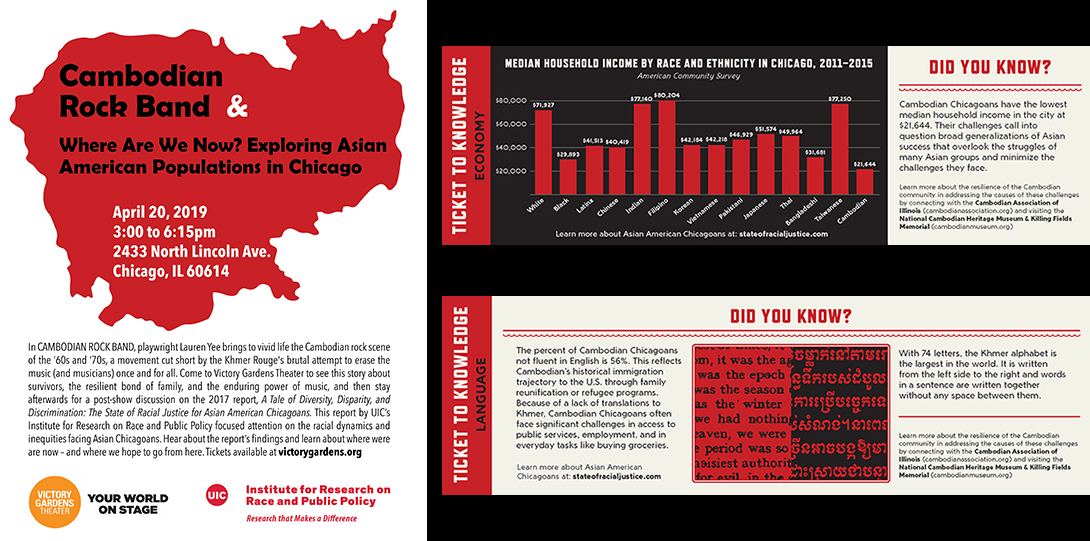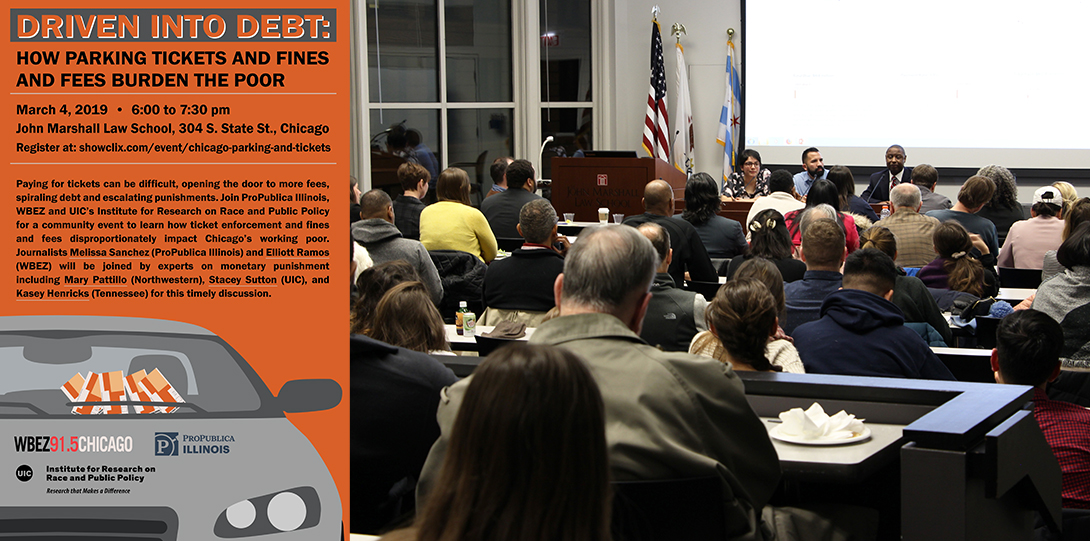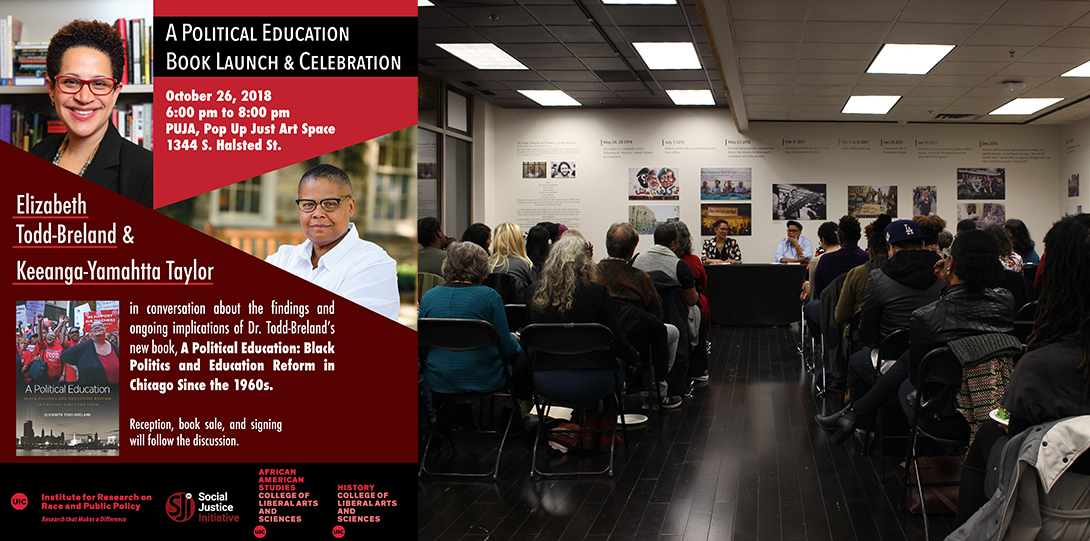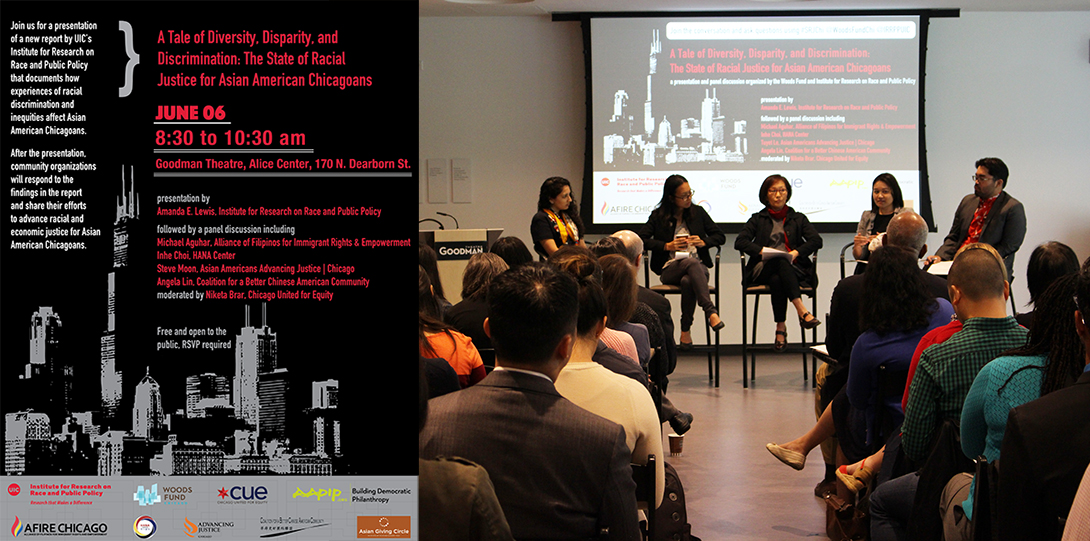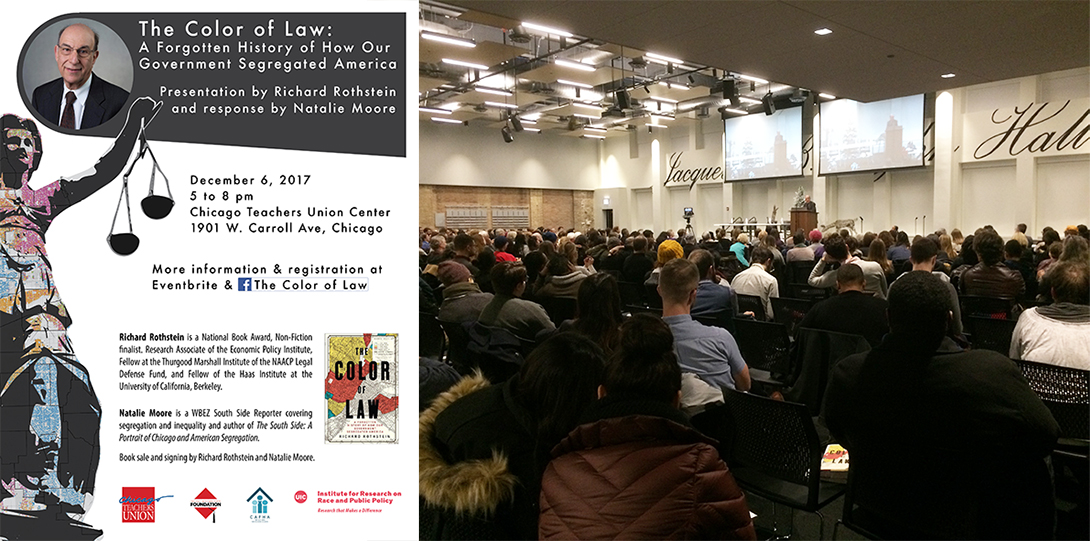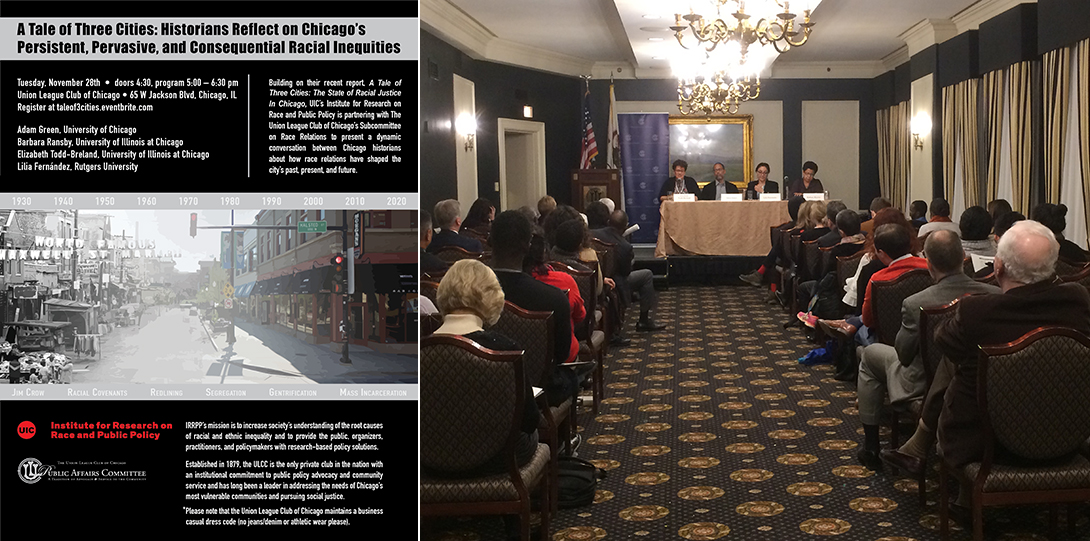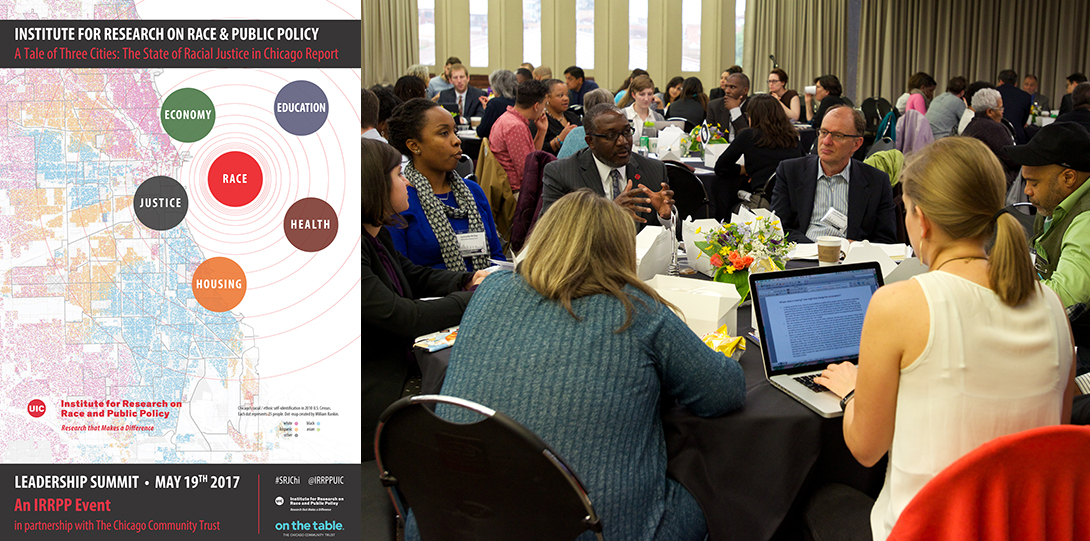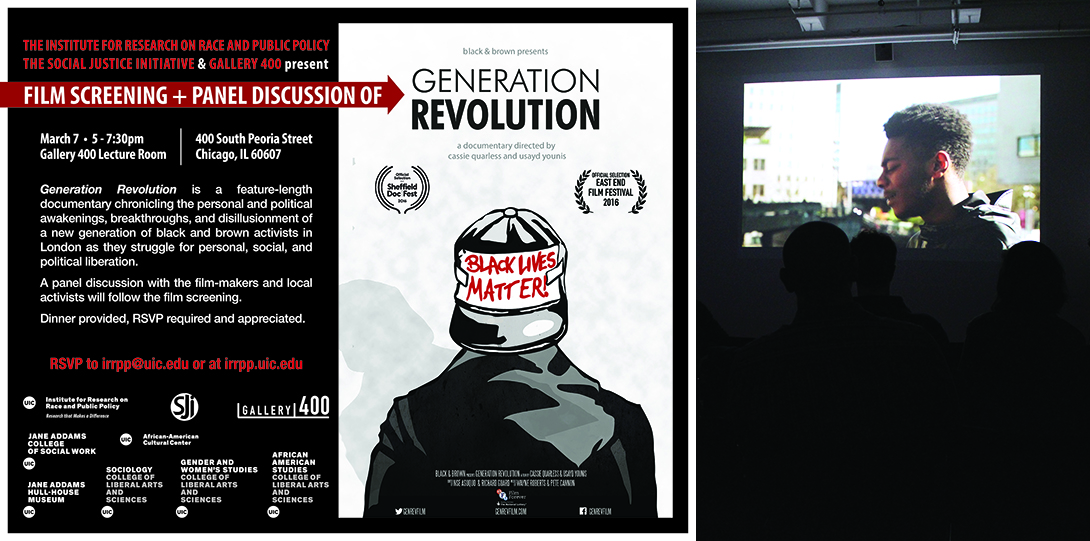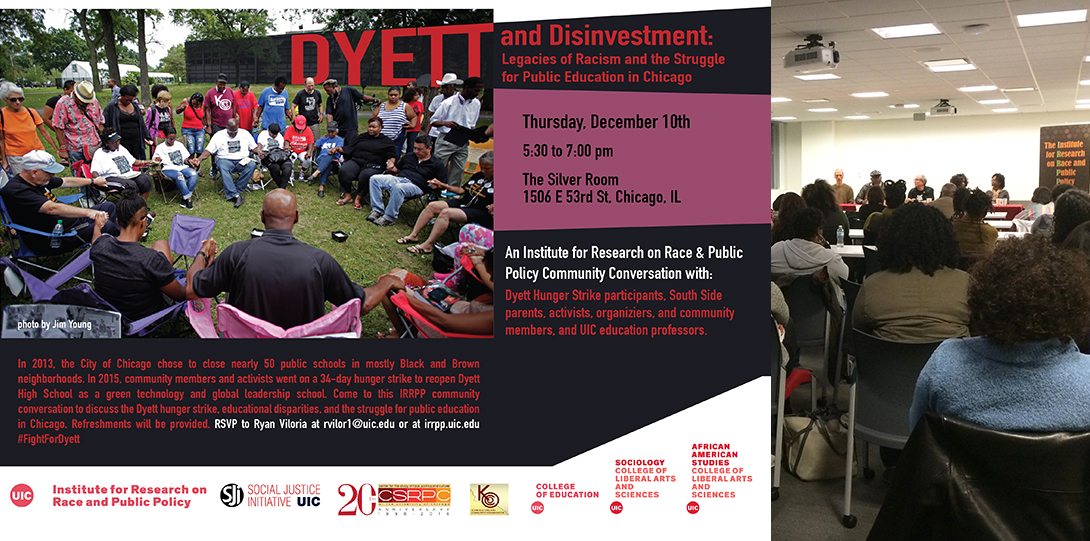Legacies of Racism Series
Events in the Legacies of Racism Series deepen our understanding of the challenges and possibilities of policy efforts to address longstanding racial inequality. Legacies of Racism events build on the themes from our State of Racial Justice in Chicago reports and explore the recent and historic origins of racial and ethnic inequities and ask questions about what it means to try to repair systematic harm done to people and communities.
Upcoming Events in this Series
View the full IRRPP Events Calendar
Transnational Migration Deterrence and the Possibilities for #AbolishICE
On November 18, 2020, the Race & Empire Working group and IRRPP held a conversation with Jenna Loyd (UW-Madison), A. Naomi Paik (UIUC), Alison Mountz (Wilfred Laurier University), and moderators Patrisia Macías-Rojas (UIC) and Nicole Nguyen (UIC) about the transnational and racial roots of our immigration system and how any campaign to end the horrors of family separation and detention must address the transnational deterrence policies in which they are rooted.
The Latinx Vote & the 2020 Election
On October 26, 2020, UIC’s Latin American and Latino Studies, IRRPP, and other co-sponsors held a conversation between Geraldo L. Cadava (Associate Professor of History at Northwestern) and María de los Angeles Torres (LALS Professor at UIC) moderated by Adam Goodman (LALS Assistant Professor at UIC) about the role that Latinxs are playing in the 2020 election and what the two major political parties have done — or have not done — to win Latinx support.
Ending Anti-Blackness in Latinx Communities
On September 1, 2020, IRRPP, Latin American and Latino Studies, and the Chancellor’s Committee on the Status of Latinos held an event to engage with the problem of anti-blackness in Latinx communities. Panelists were Regina Russell (Chicago Alliance Against Racist and Political Repression labor committee co-chair & Mamas Activating Movements for Abolition and Solidarity Member), Bertha Escamilla (Mamas Activating Movements for Abolition and Solidarity Member & Campaign to Free Incarcerated Survivors of Police Torture member), José López (Puerto Rican Cultural Center Executive Director), Fernanda Castellanos (Organized Communities Against Deportation Asambleas leader), Crystal Galván (McNair Program at Purdue University), Mario Lamothe (Assistant Professor of Black Studies & Anthropology at UIC), and Ralph Cintron (Professor of Latin American and Latino Studies & English at UIC).
IRRPP & SJI Town Hall Series
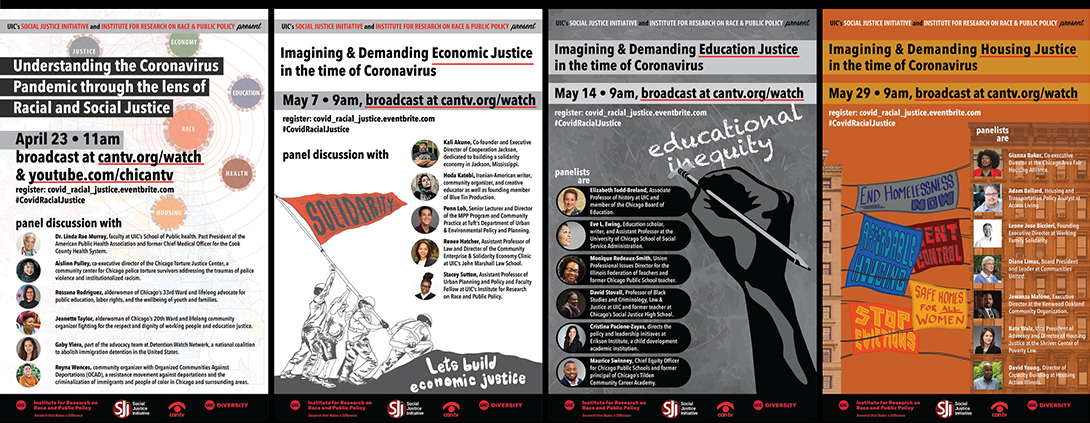
In many ways, the coronavirus pandemic is an unprecedented moment. Many around the world are adjusting to physical distancing, stay at home orders, school closures, closed public spaces, and transformed social relations. Although the threat of layoffs and high unemployment, lack of health resources, challenges in education, and insecure housing are new to many, black and brown communities across Chicago and the nation have had to contend with these challenges as daily facts of life well before this pandemic.
As part of the Legacies of Racism series, IRRPP and the Social Justice Initiative undertook a series of discussions about the relationship between the Covid 19 pandemic and racial and social justice.
Understanding the Coronavirus Pandemic Through the Lens of Racial and Social Justice
On April 23, 2020, IRRPP and the Social Justice Initiative held a conversation with health experts, local and national immigration activists, Chicago alderwomen, and criminal justice organizers to discuss how we work towards and achieve racial justice in the time of Coronavirus and beyond. Panelists were Dr. Linda Rae Murray (Faculty at UIC’s School of Public health), Aislinn Pulley (Co-Executive Director of the Chicago Torture Justice Center), Rossana Rodriguez (Alderwoman of Chicago’s 33rd Ward), Jeanette Taylor (Alderwoman of Chicago’s 20th Ward), Gaby Viera (part of the advocacy team at Detention Watch Network), Reyna Wences (Organizer with Organized Communities Against Deportations), and Barbara Ransby (Distinguished Professor of History and Gender & Women’s Studies at UIC).
This program was broadcast by Chicago Access Network Television (CAN TV).
Imagining and Demanding Economic Justice in the Time of Coronavirus
On May 7, 2020, IRRPP and the Social Justice Initiative held a conversation with writers, organizers, educators, and academics to discuss how collective action and the solidarity economy can help to not only address immediate issues related to the Coronavirus pandemic but also plan for an alternative economic future. Panelists were Kali Akuno (Co-founder and Executive Director of Cooperation Jackson), Hoda Katebi (Iranian-American writer, community organizer, and creative educator as well as founding member of Blue Tin Production), Penn Loh (Senior Lecturer and Director of the MPP Program and Community Practice at Tufts University’s Department of Urban and Environmental Policy and Planning), Renee Hatcher (Assistant Professor of Law and the Director of the Community Enterprise and Solidarity Economy Clinic at UIC John Marshall Law School-Chicago), and Stacey Sutton (Assistant Professor of Urban Planning and Policy and Faculty Fellow at IRRPP).
This program was broadcast by Chicago Access Network Television (CAN TV).
Imagining and Demanding Education Justice in the Time of Coronavirus
On May 14, 2020, IRRPP and the Social Justice Initiative held a conversation with writers, organizers, educators, and academics about the key challenges and opportunities to advance education justice in the current moment in Chicago. The panel discussed the ways in which the Coronavirus pandemic is shaping our education system and what we can do to transform education to better serve the needs of students, teachers, parents, and communities as we prepare for the near and long term. Panelists were Elizabeth Todd-Breland (Associate Professor of history at UIC and member of the Chicago Board of Education), Eve L. Ewing (education scholar, writer, and Assistant Professor at the University of Chicago School of Social Service Administration), Monique Redeaux-Smith (Union Professional Issues Director for the Illinois Federation of Teachers and former Chicago Public School teacher), David Stovall (Professor of Black Studies and Criminology, Law & Justice at UIC and former teacher at Chicago’s Social Justice High School), Cristina Pacione-Zayas (directs the policy and leadership initiatives at Erikson Institute, a child development academic institution), and Maurice Swinney (Chief Equity Officer for Chicago Public Schools and former principal of Chicago’s Tilden Community Career Academy).
This program was broadcast by Chicago Access Network Television (CAN TV).
Imagining and Demanding Housing Justice in the Time of Coronavirus
On May 29, 2020, IRRPP and the Social Justice Initiative held a conversation with grassroots organizers and housing policy advocates about the key challenges and opportunities to advance housing justice in the current moment in Chicago. The panel discussed the ways in which the Coronavirus pandemic is impacting affordable housing, rent reform, and health and physical safety inside the home as well as what we can do to transform housing policies to better serve the needs of working families and all Chicago and Illinois residents as we prepare for the near and long term. Panelists were Gianna Baker (Co-Executive Director at the Chicago Area Fair Housing Alliance), Adam Ballard (Housing and Transportation Policy Analyst at Access Living), Leone Jose Biccieri (Founding Executive Director at Working Family Solidarity), Diane Limas (Board President and Leader at Communities United), Jawanza Malone (Executive Director at the Kenwood Oakland Community Organization), Kate Walz (Vice President of Advocacy and Director of Housing Justice at the Shriver Center of Poverty Law), and David Young (Director of Capacity Building at Housing Action Illinois).
This program was broadcast by Chicago Access Network Television (CAN TV).
